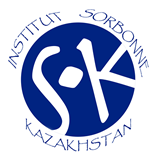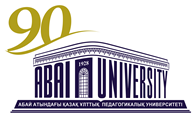|
|
|
|

Model of the graduate of the educational program International law
The goal of the OP International Law is to train highly qualified specialists in the field of international public and private law with knowledge of three foreign languages, who can become part of the elite of Kazakhstani lawyers and meet modern public challenges. The qualitative difference of this program lies in the training of specialists who not only have a sufficient amount of knowledge in the field of international law, but are also capable of further self-development, independent search, formulation and solution of legal problems, using, among other things, creative and non-standard approaches.
The goal of the program was formed taking into account the foreign policy of the Republic of Kazakhstan and the development of integration processes in the Eurasian space. The creation of the Eurasian Economic Union and entry into the World Trade Organization requires specialists in the field of international law with new knowledge and competencies, both in the field of public law and private law.
Formation of the objectives of educational programs, taking into account the development of the economy and the needs of the labor market of the region and the country with an emphasis on student-centered learning, teaching and assessment
Program objectives:
• provision of conditions for obtaining a full-fledged, high-quality professional education in the field of international law with knowledge of three foreign languages;
• training of highly qualified international lawyers necessary for Kazakhstan to carry out foreign policy and foreign economic functions;
• training in fluency and interpretation of the international legal framework of the Republic of Kazakhstan and the national legislation of the Republic of Kazakhstan.
• training of highly qualified international lawyers necessary for Kazakhstan to carry out foreign policy and foreign economic functions;
• formation of legal culture, ethical culture of thinking;
• formation of universal and social and personal values;
• education in the spirit of Kazakhstani patriotism, friendship of the peoples of the Republic of Kazakhstan, tolerance.
The EP graduate model is a complex combination of professionally significant and personal qualities that determine the competence degree of a student's activity at each of its levels. The general competencies of the Bachelor of Science in the specialty 5B030200-International Law are formed on the basis of key personal (requirements for general education, socio-ethical, legal and organizational and managerial competencies) and special (professional) competencies.
Requirements for key competencies of a bachelor's degree graduate:
- have an idea of the basic teachings in the field of humanities and socio-economic sciences;
- know the basic legal concepts, areas of their application; ethical legal norms governing relationships in society; basic theories and concepts of the development of modern international legal science; structure, principles and methods of work of state authorities of the Republic of Kazakhstan in the field of foreign and domestic policy, international relations;
- be able to interpret and apply laws, international treaties and other legal acts; ensure compliance with national legislation and international law in the activities of government agencies, individuals and legal entities; legally correct facts and circumstances; develop legal documents, carry out legal expertise of international and national regulations, provide qualified legal opinions and advice; make legal decisions and take other legal actions in strict accordance with the law; to reveal and establish the facts of offenses, to determine the measures of responsibility and punishment of those responsible; take the necessary measures to restore violated rights; systematically improve their professional qualifications, study legislation and the practice of its application, navigate in special literature;
- development of communication skills, communication skills, managerial and leadership qualities, the ability to work in a team;
- have self-study skills upon completion of the study program in order to expand their knowledge; public speaking, correct and logical formulation of their thoughts in oral and written form to participate in discussions on professional issues; drafting contracts in the field of international trade, joint production activities; application of the categorical and terminological apparatus of modern research in the field of international law; possession of the technique of preparing and conducting diplomatic negotiations, as well as negotiations on the preparation of draft commercial contracts; possession of methods and techniques of specific research in the field of international law and international relations, including comparative and retrospective methods;
- to be competent in the processes of social and political development of the state, in the development trends of international and national legislation.
Special competencies
• knowledge and understanding:
- knowledge of the main international legal problems of modern international law;
- knowledge of the theoretical foundations of international law and its related disciplines, their place in the general system of sciences;
- knowledge about the value, history of development and the current state of international law;
- knowledge about the basics of public international law, national legislation of the Republic of Kazakhstan, the international legal framework of the Republic of Kazakhstan, the basics of foreign and domestic policy, theory of state and law, diplomatic and consular law, etc.
- knowledge about innovative technologies for teaching international law;
application of knowledge and understanding:
- application of theoretical, practical knowledge and research foundations in the field of international law in the educational process and in everyday life;
- analysis and generalization of information on international law, on the main problems of interaction between the state and society;
- independent conduct of international legal research and experiments, analysis and evaluation of results using scientific research using innovative technologies;
- Possession of computer modeling techniques and methods of theoretical analysis and processing of the results of observations and experiments;
- implementation of innovative ideas in education, the ability to make non-standard and alternative decisions on the development of the program of international law.
forming judgments:
- systems thinking and holistic perception of the study of international legal issues;
- independent thinking, critical, analytical, diagnostic skills;
- awareness of the social significance of international law, adherence to the principles of professional ethics;
- the ability to analyze and form judgments about global world problems in the modern system of international law.
personal abilities:
- possession of communication technologies, skills of professional legal rhetoric, communication strategies in international media law;
- tolerance and ability to develop professional cooperation;
- striving for the development of legal, intellectual, moral, cultural, communication, organizational and managerial skills;
- striving for self-education and self-realization;
- the ability to form a healthy lifestyle and compliance with labor protection.
KazNPU them. Abaya conducts regular assessment and revision of programs with the participation of students, employees, employers and other stakeholders based on the systematic collection, analysis and management of information, as a result of which programs are adapted to ensure their relevance.
The titles and content of the EP disciplines correspond to the current trends in the development of modern international law.


